- Home
- Anne McCaffrey
Power Play Page 17
Power Play Read online
Page 17
“Not that I know of,” Namid said as reassuringly as Diego had spoken to Bunny. “Now, don’t you worry yourself, Madame . . .”
“I thought we’d reached the first-name basis, Namid,” Marmion said, emphasizing his name.
“Thank you. Well, let me repeat: No, Louchard tends to deal in inanimate cargo, which is why I’m really surprised to see him turn to abduction.”
“Cargoes being unable to testify in court, right?” Yana remarked cynically.
“Exactly, and once sold on can rarely be traced, since so often they are the raw materials which are turned into different goods entirely.”
“Tell me,” Yana said with a sudden surge of mirth, “does Louchard then steal those goods and sell them on?”
Namid’s face and eyes lit with answering amusement. “I really haven’t been with this happy band of free-souls long enough to have observed that.” Then he sobered. “I can only extrapolate from what Dinah used to tell me. And, of course, I’d no idea that she was generally transporting stolen goods.” He sighed unhappily, and now it was Marmion’s turn to console him.
“But you do agree that we’re breathing a different kind of air right now, don’t you?” Bunny insisted.
“I do,” Marmion said, and the others nodded. “Clever of you to have noticed, Bunny. Although why the pirate ship remained so long at Gal Three . . .”
“That’s the easiest part to guess,” Bunny said impatiently. “Who’d look on the station for us?”
“A good point,” Marmion said magnanimously. “Your pirate captain is indeed a devious man.”
“I wonder if he’s an orphan,” Namid mused, trying vainly to cheer himself up.
“An orphan?” Bunny exclaimed in surprise. She’d been one most of her life and had never found the condition easy. She nearly lost Namid’s response, because thinking about being an orphan reminded her that, if the pirate should waste them all, ’Cita would be all alone again and lose what precious little self-confidence she’d gained since knowing she was Bunny’s sister and a Rourke.
“Yes, an orphan,” Namid went on briskly. “To further the analogy of the pirates I mentioned earlier.”
Bunny forced her mind off sad thoughts and listened while, with such music and words as he remembered from the score of The Pirates of Penzance, he regaled them and thus passed the time until their next meal as pleasantly as their circumstances allowed.
“They call this ‘spring’?” asked Zing Chi, chief representative of the Asian Esoteric and Exotic Company Ltd., as he glanced around the desolate sweep of the broad valley, soggy with melt, yet burgeoning with insect life and the blooming of plants that the insects were helping to germinate. He was thoroughly disgusted and wanted to leave when they’d only just managed to get to Petaybee South. The transport service on which he had booked his team had been terminated and their monies returned, but the refund alone was barely sufficient to bribe their way to the planet’s surface, to this particular, comparatively unsatisfactory setdown point. The southern pole of the planet did contain some of the botanicals listed, but it was the northern continent that was the documented source of what he had been assured were riches of herbal gold—and those elusive qualities in unicorn horns and cats’ whiskers for which his company could charge their oldest customers vast fortunes.
Zing Chi was one of the best field operators, able to strip acres of plants by bloom, leaf, stem, and root in no time at all. Some of the vegetation in sight looked familiar and was supposed to be plants that had been brought to Petaybee during the initial terraforming so they could adapt to this new world. But the nearest were only ground cover, cultivated to keep topsoil from being blown away.
He had been given no warning that his entire team would have to do all of their collecting on foot. They had seen no villages so far, no cities, no place to purchase transport of any sort. Zing Chi began to fear that there was none to purchase.
Fortunately, his people were very good walkers and walk they did, gathering, stripping, and neatly cataloguing anything vaguely resembling the plant materials listed, even those available elsewhere.
After five days, they had laid bare a strip approximately fifteen miles long and a half a mile wide. It took all the animals they could find to feed them, for this time of year, there were no berries or nuts of any sort remaining. Zing Chi’s team consisted of a hundred and fifty people, and they required much food.
One day the son of one of his senior men, Lu Han, brought what looked like a small spotted lion cub in his arms.
“Which whiskers do we need, boss?” he asked Zing Chi. “This little fellow will need some of them for his balance and space sense. He won’t mind losing a couple though, I think. He’s a good cub.”
“Do as you’re told and the animal will have no need for whiskers. We haven’t enough to eat. Kill it, take the whiskers, and skin it. The rest is for the soup pot. Our clients have specified that they want the whiskers of orange cats only, but since they do not seem to know enough to assist us in reaching that which we need to harvest, I do not suppose they will know the whiskers of an orange cat from those of this cub. The bounty will be the same.”
“But, boss . . .”
“Do as I say.”
The boy nodded, and the cub, as if sensing that the decision had gone against him, began to wiggle in his arms.
18
’Cita caught Johnny Greene as he boarded his copter for the trip south to help O.O. and his men install Loncie Ondelacy’s cube. Coaxtl padded behind. The cat did not think highly of flying machines.
Birds are for eating, the cat protested. Riding in them makes one feel that one is a youngling being carried in the beak of a prey-bird for the feeding of her chicks. One does not like this feeling.
“Stop complaining,” ’Cita said. “You’ll like being in the South again. Hi, Captain Johnny!”
“ ’Cita! How are you and your fine furry friend this morning?” the pilot asked, grinning down at her.
“I am far better than I have any right to expect, though I worry for the sake of my sister and Auntie Yana and Diego. But this one”—she pointed to Coaxtl—“longs to see her old caves again. A week ago she said she was fine but suddenly she growls in her sleep and talks only of going home. I heard you were taking one of these big houses to Loncie and Pablo, and I hoped that we might burden you with ourselves. I would like to show Carmelita and Isabella what I’ve learned in school. I have many new songs to sing, however poorly, for those who were so kind to a foolish stranger before I came here.”
“What does your uncle say?”
“He doesn’t mind. He says you are making regular trips now and could perhaps bring us back in a day or two? So we will not trouble Loncie for too long?”
“Sure, if it’s okay with Sean. I know Loncie and Pablo and the kids will be glad to see you again. They’re not going to believe how you’ve filled out in just a few months!”
All of these words had to be shouted over the roar of the copter’s great engines, but at last ’Cita made herself comfortable in the back, and Coaxtl grumblingly curled up in a tight ball at her feet.
’Cita enjoyed the trip very much. She liked watching as O. O’Neill’s special jet-crane hoisted the great boxes in the air and flew with them dangling, just so, so that the weight did not upset the aircraft. Johnny’s aircraft carried lighter cargo, in addition to herself and Coaxtl—more administrative paperwork bundled by Una Monaghan to go to Loncie Ondelacy.
’Cita loved it when they reached the sea and she could see that the ice was already beginning to thicken off the northern coast. Whales and seals danced in the shadow of the aircraft, and dolphins leaped high, as if trying to touch the dangling cargo with their noses before diving again.
Gradually the color of the water began to change from gray-green to brighter, jade green to pale gray-blue and to the deep bright blue of the glacier crevice, then back again to blue-green, and almost lime. The air clouded with steam, and below the water boiled and hi
ssed. Off to the right, a little island stuck up above the water, probably not even a mile wide yet, but it seemed to grow even as ’Cita watched, and already parts of it were seamed with green. Beyond stretched other such islands, and ’Cita wondered how tong it would take them to touch and make one big one.
Coaxtl was steeping and didn’t seem to be wondering about anything, but she growled and sometimes snarled and her paws curled and uncurled. ’Cita wished she knew what the cat was dreaming about, but Coaxtl only spoke to her in her head on purpose—’Cita was still too stupid and insensitive to read the great cat’s mind.
Then they were beyond the steam and the islands and back into the iceberg-clogged waters near the southern coast. Breakup was just beginning there, even as winter was beginning in the north, and great rushes of water spumed in the air as the icebergs broke free and calved from the ice pack. She saw a white bear jump from one piece of ice to the other, trying to reach shore. The bears were very hungry and ate people, but still she hoped he made it. He was trying so hard.
They didn’t even stop and refuel at Portage but flew straight on to Sierra Padre, where Loncie and Pablo and their family lived.
But as they passed over the broad plain between rivers and mountain ranges, they saw a strange sight. The ground was as bare for miles around as if it had been closely grazed by some animal, and many people were bent over, harvesting what looked like weeds. ’Cita could see no reason for it.
Johnny flew low, buzzing the people playfully—but also curiously, ’Cita thought. These might be like the hunters and the funny people in white robes and the serious businesspeople she had seen before.
Whatever they were, Coaxtl didn’t like them. Without so much as a warning, the cat sprang to her feet and threw herself against the door.
“Coaxtl, no! We’re high up! You would be killed.”
Coaxtl scratched long rents in the steel of the door, snarling. One will go out. Now.
’Cita ran to throw her arms around the cat and was dragged to the window; as the copter canted to the right, she suddenly found herself looking into the face of a boy a few years older than herself, with features that reminded her somewhat of Pablo’s. He had been holding something, and his arms were still stretched toward it, where it cut a swath through the untouched undergrowth.
Coaxtl’s scratching grew less furious as Johnny circled the area twice, thoroughly confusing the Nakatira Company crane copter, which hovered uncertainly before flying slowly forward, waiting until Johnny finished his survey. The people on the ground below looked up. They were not well dressed for winter.
When the people were at last far behind them, Coaxtl heaved a great sigh and jumped up on the seat ’Cita had occupied, parts of her hanging over the edges. ’Cita plopped down within the overhang of the cat’s giant paws and scrunched the thick soft fur of her friend’s belly with her fingers.
Coaxtl did not speak for the remainder of the flight, though she rumbled contentedly from time to time as ’Cita stroked her. ’Cita would have spoken, but the roar of the copter jets was too loud, and besides, she did not know what to say.
As soon as the copter landed and the door was open, Coaxtl streaked out and bounded away.
“Wait!” ’Cita cried.
The Home is in need, Coaxtl’s voice told her. Bring help.
Johnny jumped down from the copter and helped ’Cita out. “Looks like your friend had an urgent appointment.”
“She said the Home needed help,” ’Cita told him.
“Yes,” Johnny said. “I can see that. Don’t worry, ’Cita. As soon as we’ve had a word with Loncie and Pablo and O.O. installs his cube, we’re outta here, and I think we need to pay our respects to the planet’s newest guests and ask them what the frag they’re doing here. I have a hunch we’ll find Coaxtl there.”
“You are wise, Captain Johnny. Surely that is where Coaxtl will go, for she opposed their presence.” ’Cita pointed to the long rents in the steel door.
Johnny groaned. “That’s not going to be easy to explain to the company.”
But there was no need to explain to Loncie and Pablo, beyond telling them of the barren swath the newcomers were cutting. Loncie told O.O. to put the cube behind the house, and ran out the door just ahead of her husband, who grabbed both of their coats and summoned several neighbors. All of them crowded into the helicopter, pushing ’Cita away to climb in before her.
She knew they were adults and much wiser and stronger than she. She knew she was being wicked and disobedient to crowd her way aboard. But Coaxtl was her friend and did not speak to others here.
She stuck out her chin and lowered her brows and tried to look defiant and invisible at the same time, but felt a pair of hands lift her over the heads of the adults seated on the floor, and found herself dragged into Loncie’s lap.
“So you come with us, eh, Pobrecita?”
“Sí” ’Cita said. “I do.”
“Bueno,” Loncie said, patting her back.
The copter set down and the doors opened. People poured out. Not many, compared to the people on the ground. Only seven passengers, plus ’Cita and Johnny.
The newcomers stayed well back of the rotor blades until Johnny shut them down. Then they pushed forward, a handsome golden-skinned man with black hair and black, hooded eyes at the fore. All of the people were carrying things ’Cita couldn’t see clearly.
“Sláinte,” Johnny said. “This lady is Lonciana Ondelacy, the regional administrator of the southern continent. This is her husband, Pablo Ghompas, and these here are what you might call the county council.”
The man made a slight bow in the direction of Pablo and Loncie. “How kind of you to greet us.”
Loncie inclined her head slightly, cautiously. “What brings you here, señor?”
“A mission of mercy, madame. My name is Zing Chi. I am of the Asian E and E Company Limited. We have been sent to collect certain substances to heal the sick and ease the ravages of age. Many of these things are obtainable only here. But we had no transportation until you arrived, and no way of finding what we seek. You can help us?”
’Cita did not like his smile and hung behind Loncie’s broad back.
“We’ll be pleased to, honored guest,” Pablo said, before anyone else could say anything. “If only you will tell us what you seek.”
Zing Chi reached into his pocket and pulled forth a written list. Pablo accepted it, handing it to Loncie, who could read, having once been in the employ of the company.
“What is this?” Loncie asked, anger rising in her voice as she read. “The whiskers of orange cats? Unicorn horns?”
“Oh, my goodness me,” Pablo said, before she could tell them what she thought of their list. “What does it all mean? Gentlemen, whatever would you use such things for?”
“Unicorn horn is well known as an aphrodisiac and a preventer of poisonings, good sir,” Zing Chi said with another bow. “Most valuable. The whiskers of the orange cats are said to prolong youth and good health.”
Pablo shook his head. “Not here, I’m afraid. Someone has misled your informant.”
“Is that true?”
“Oh, my goodness, yes. The unicorn horn you find on Petaybee is no good at all for aphrodisiacs.”
“Is it not?” Zing Chi asked politely.
“You have been misled,” Pablo said. “That is understandable, sir, since undoubtedly your information could not have come from anyone who actually had harvested the worthless horn of one of the Northern curly stags in the winter. The horns are good for cutting ice, which is what the curly-corn uses it for. No more than that.”
“Are you absolutely certain?” Zing Chi asked with apparent courtesy.
Pablo sighed and hung his head. “You may ask my wife.”
Loncie shook her head sadly. “It is true. We had Captain Greene fly us down the horn of a curly-coat killed in an avalanche so that Pablo could try the cure, but, alas—it was no good. Nothing did any good, in fact, until he ate the polar be
ar balls.”
“Polar bear balls?” several of the men gasped inquiringly.
“Ah, sí. When I finally recovered, I was muy macho in a way that only the polar bear balls of Petaybee can make a man who has lost his will to . . .” Pablo made what was often considered a rude or lewd gesture.
“I will add that to the list, then, sir,” Zing Chi said.
“Of course, with all Petaybean remedies, there is a secret in the gathering as well as in the mixing, you understand,” Pablo said.
“What secrets would those be, kind sir?” Zing Chi asked.
“If I told, they wouldn’t be secrets, would they?”
“We are willing to pay special—informants—handsomely for research information,” Zing Chi said.
“Oh, did you hear that, Pablo?” Johnny asked. “They’ll pay us handsomely. I could get my copter door repaired, and you and Loncie could reinsulate your hacienda.”
“I don’t know, Captain Johnny,” Pablo said, shaking his head. “Once the secret is sold, it is no longer a secret, and it is very dangerous.”
Loncie grabbed her husband’s arm. “We could build new bedrooms for our fourteen youngest offspring, corazón,” she said.
’Cita looked up at her curiously. Loncie and Pablo had only Carmelita and Isabella.
“That is true,” Pablo said. “Very well. But we are Petaybeans, remember, and you gentlemen perhaps should not risk your lives professionally. It must be said that taking polar bear balls is done only when one has dire personal need, as I did. The secret, you see, is . . .” He beckoned the man forward and whispered fairly loudly in his ear. “The polar bear must be alive when you take his balls. You sneak up behind the bear and quickly tie a string around his balls. Then you must follow him around until they drop off.”
“Why not just kill the bear and harvest the balls?” Zing Chi asked, not whispering.
Johnny pretended to be shocked. “You didn’t tell him that part, did you, Pablo? Well, I guess as long as the bear’s out of the bag, you ought to know. My great-granddad, when he first came to Petaybee, needed bear balls but he was in a big hurry and he killed the bear. He got what he wanted okay but only used it once before he dropped dead in bed. Did die happy, though.”

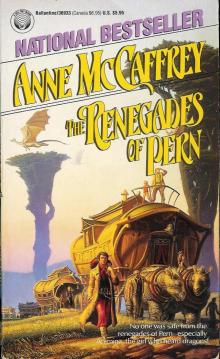 The Renegades of Pern (dragon riders of pern)
The Renegades of Pern (dragon riders of pern)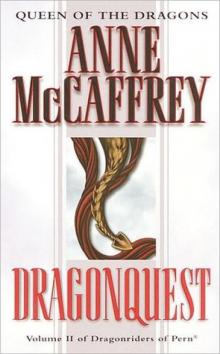 Dragonquest
Dragonquest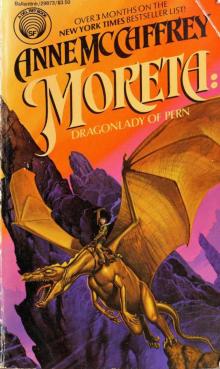 Moreta (Dragonlady of Pern)
Moreta (Dragonlady of Pern)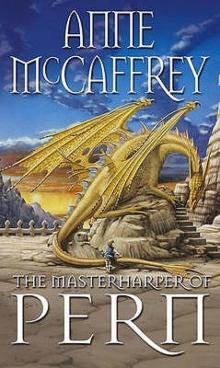 The Masterharper of Pern
The Masterharper of Pern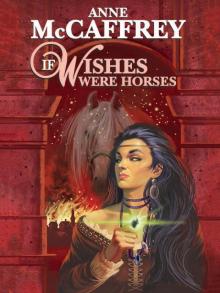 If Wishes Were Horses
If Wishes Were Horses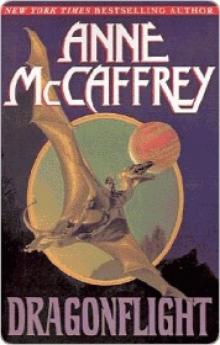 Dragonflight
Dragonflight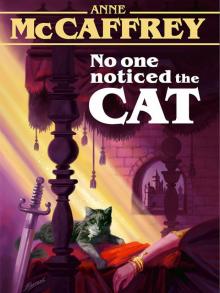 No One Noticed the Cat
No One Noticed the Cat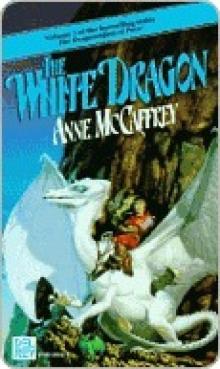 The White Dragon
The White Dragon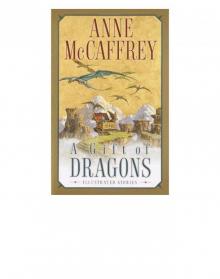 A Gift of Dragons
A Gift of Dragons Harper Hall - Dragonsong
Harper Hall - Dragonsong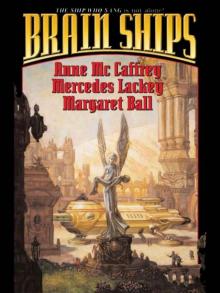 Brain Ships
Brain Ships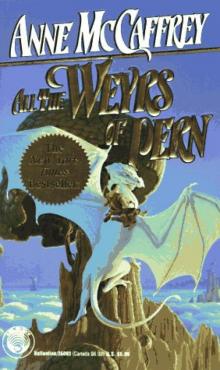 All The Weyrs of Pern
All The Weyrs of Pern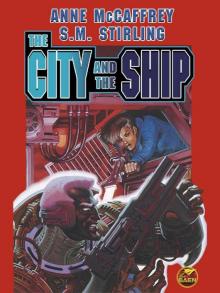 The City and the Ship
The City and the Ship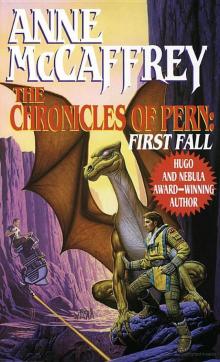 The Chronicles of Pern: First Fall
The Chronicles of Pern: First Fall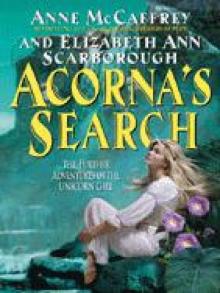 Acorna’s Search
Acorna’s Search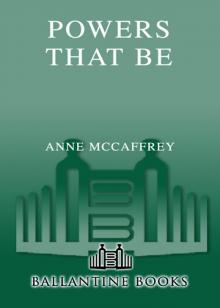 Powers That Be
Powers That Be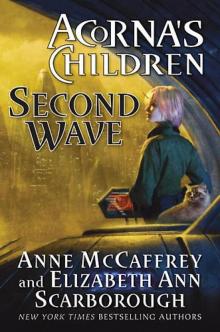 Second Wave
Second Wave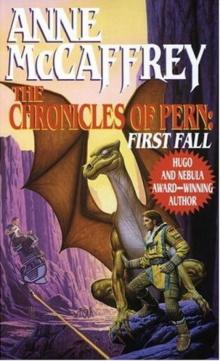 Chronicles of Pern (First Fall)
Chronicles of Pern (First Fall)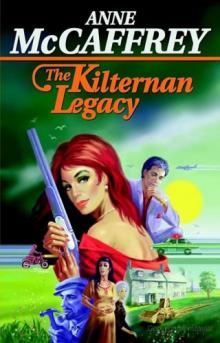 The Kilternan Legacy
The Kilternan Legacy Decision at Doona
Decision at Doona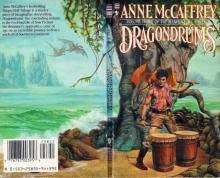 Dragondrums (dragon riders of pern)
Dragondrums (dragon riders of pern)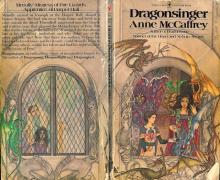 Dragonsinger (dragon riders of pern)
Dragonsinger (dragon riders of pern)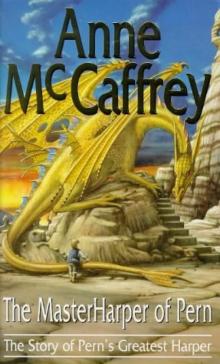 The Master Harper of Pern
The Master Harper of Pern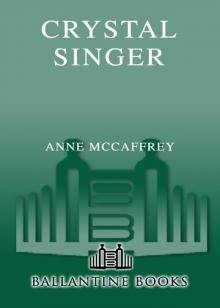 Crystal Singer
Crystal Singer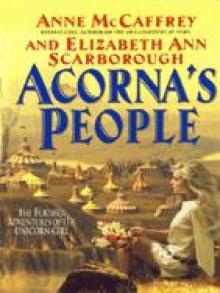 Acorna’s People
Acorna’s People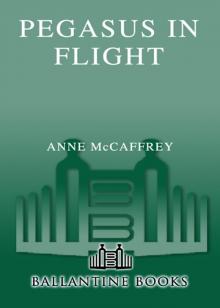 Pegasus in Flight
Pegasus in Flight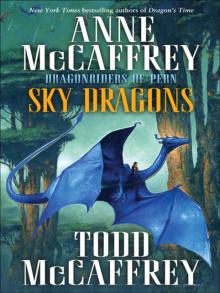 Sky Dragons Dragonriders of Pern
Sky Dragons Dragonriders of Pern Dragonriders of Pern 4 - Dragonsinger
Dragonriders of Pern 4 - Dragonsinger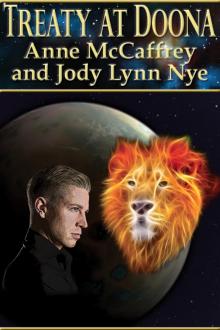 Treaty at Doona
Treaty at Doona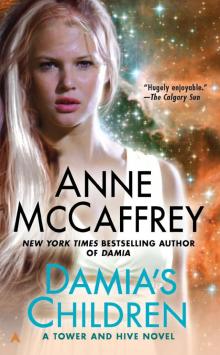 Damia's Children
Damia's Children Stitch In Snow
Stitch In Snow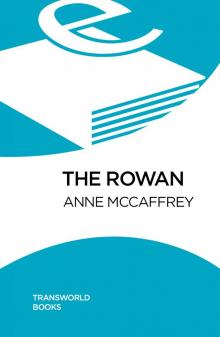 The Rowan
The Rowan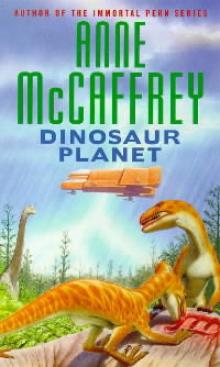 Dinosaur Planet
Dinosaur Planet The Year of the Lucy
The Year of the Lucy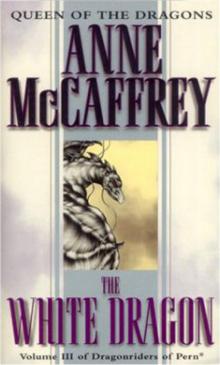 The White Dragon p-4
The White Dragon p-4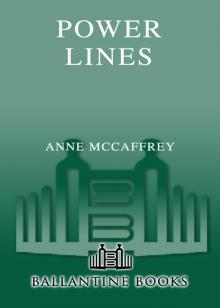 Power Lines
Power Lines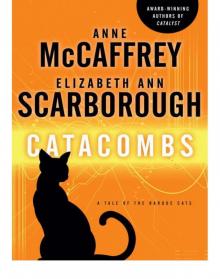 Catacombs
Catacombs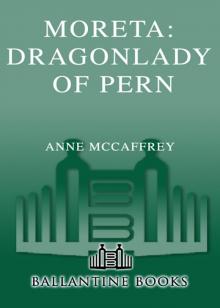 Moreta
Moreta Dragonsinger
Dragonsinger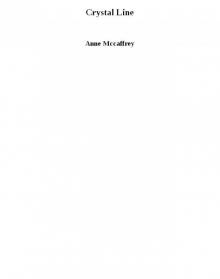 Crystal Line
Crystal Line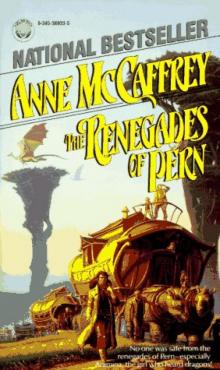 The Renegades of Pern
The Renegades of Pern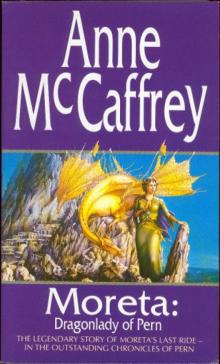 Moreta - Dragonlady of Pern p-8
Moreta - Dragonlady of Pern p-8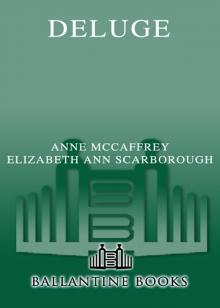 Deluge
Deluge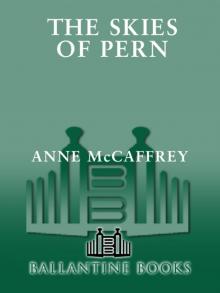 The Skies of Pern
The Skies of Pern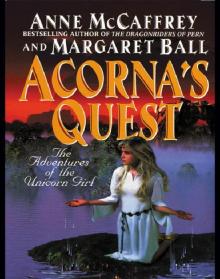 Acorna's Quest
Acorna's Quest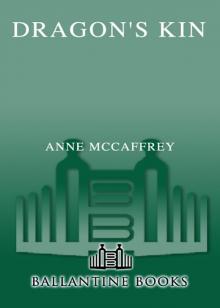 Dragon's Kin
Dragon's Kin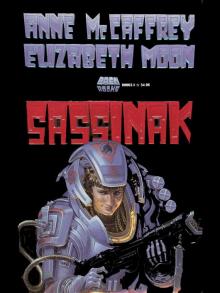 Sassinak
Sassinak![Crystal Universe - [Crystal Singer 03] - Crystal Line Read online](http://i1.bookreadfree.com/i1/03/31/crystal_universe_-_crystal_singer_03_-_crystal_line_preview.jpg) Crystal Universe - [Crystal Singer 03] - Crystal Line
Crystal Universe - [Crystal Singer 03] - Crystal Line Freedom's Landing
Freedom's Landing Acorna’s Quest
Acorna’s Quest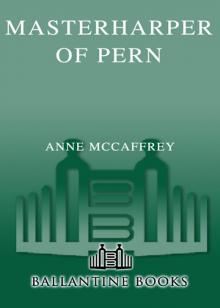 Masterharper of Pern
Masterharper of Pern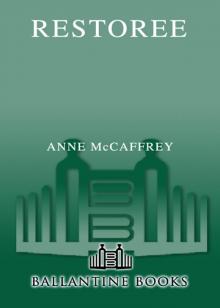 Restoree
Restoree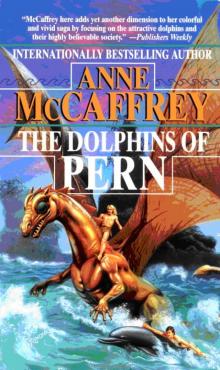 Dolphins of Pern
Dolphins of Pern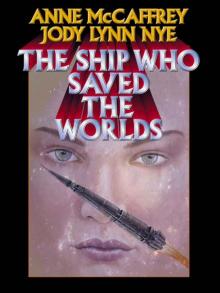 The Ship Who Saved the Worlds
The Ship Who Saved the Worlds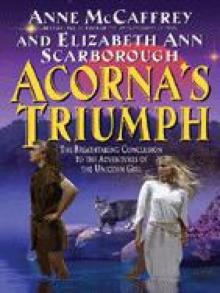 Acorna's Triumph
Acorna's Triumph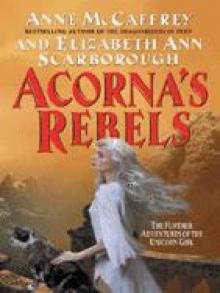 Acorna's Rebels
Acorna's Rebels![[Acorna 08] - First Warning: Acorna's Children (with Elizabeth Ann Scarborough) Read online](http://i1.bookreadfree.com/i1/04/06/acorna_08_-_first_warning_acornas_children_with_elizabeth_ann_scarborough_preview.jpg) [Acorna 08] - First Warning: Acorna's Children (with Elizabeth Ann Scarborough)
[Acorna 08] - First Warning: Acorna's Children (with Elizabeth Ann Scarborough)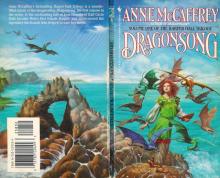 Dragonsong (dragon riders of pern)
Dragonsong (dragon riders of pern) Dragonriders of Pern 6 - Dragondrums
Dragonriders of Pern 6 - Dragondrums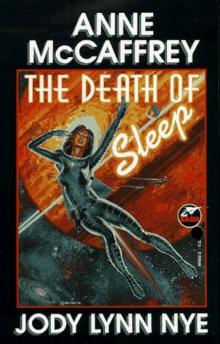 The Death of Sleep
The Death of Sleep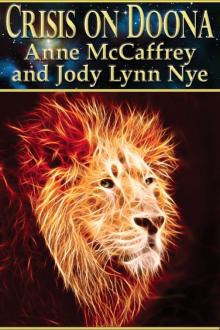 Crisis On Doona
Crisis On Doona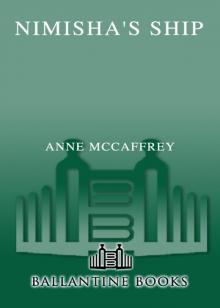 Nimisha's Ship
Nimisha's Ship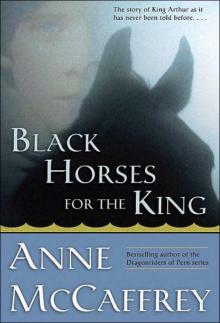 Black Horses for the King
Black Horses for the King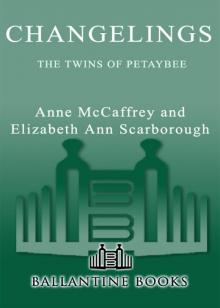 Changelings
Changelings Freedom's Choice
Freedom's Choice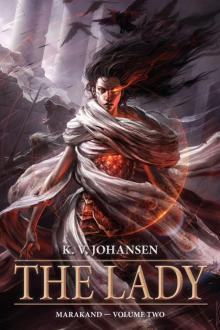 The Lady
The Lady The Coelura
The Coelura Catalyst
Catalyst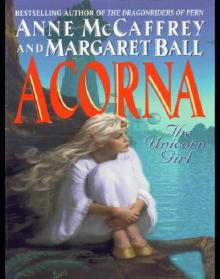 The Unicorn Girl
The Unicorn Girl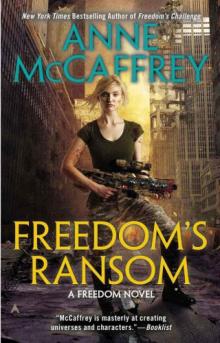 Freedom's Ransom
Freedom's Ransom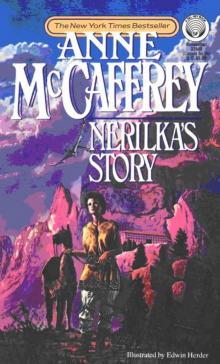 Nerilka's Story
Nerilka's Story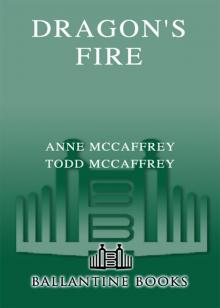 Dragon's Fire
Dragon's Fire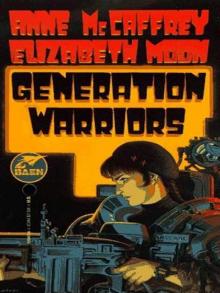 Generation Warriors
Generation Warriors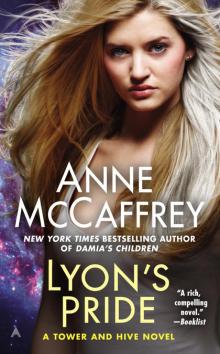 Lyon's Pride
Lyon's Pride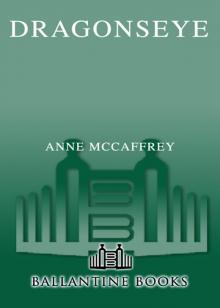 Dragonseye
Dragonseye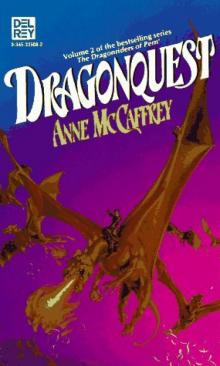 Dragon Quest
Dragon Quest Dragondrums
Dragondrums Dragonsong
Dragonsong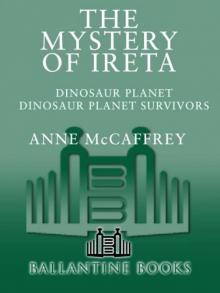 The Mystery of Ireta
The Mystery of Ireta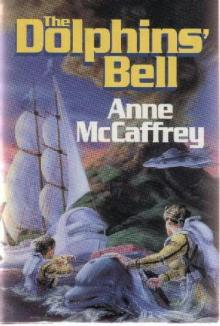 Dolphins' Bell
Dolphins' Bell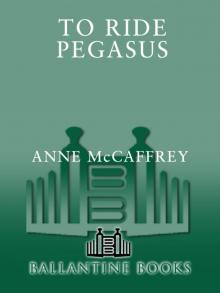 To Ride Pegasus
To Ride Pegasus Power Play
Power Play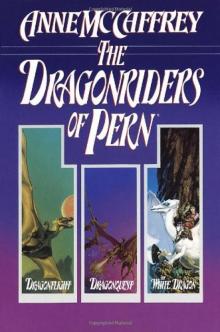 The Dragonriders of Pern
The Dragonriders of Pern An Exchange of Gifts
An Exchange of Gifts The Ship Who Sang
The Ship Who Sang Sky Dragons: Dragonriders of Pern
Sky Dragons: Dragonriders of Pern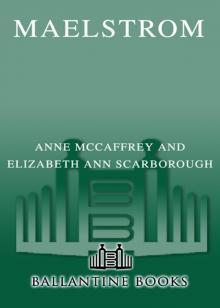 Maelstrom
Maelstrom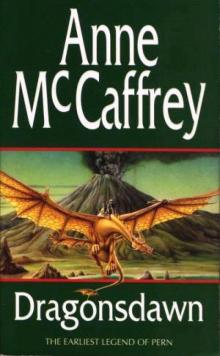 Dragons Dawn
Dragons Dawn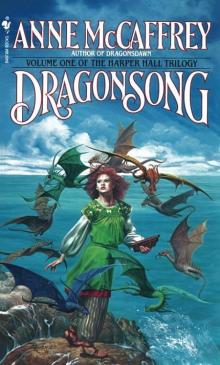 Dragon Song
Dragon Song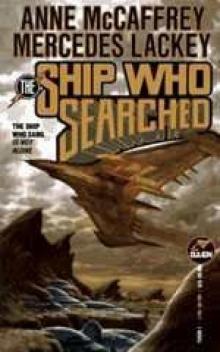 The Ship Who Searched b-3
The Ship Who Searched b-3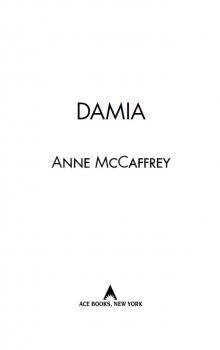 Damia
Damia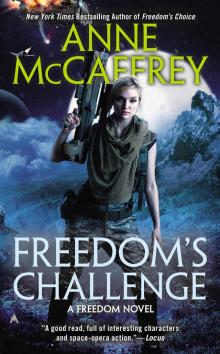 Freedom's Challenge
Freedom's Challenge